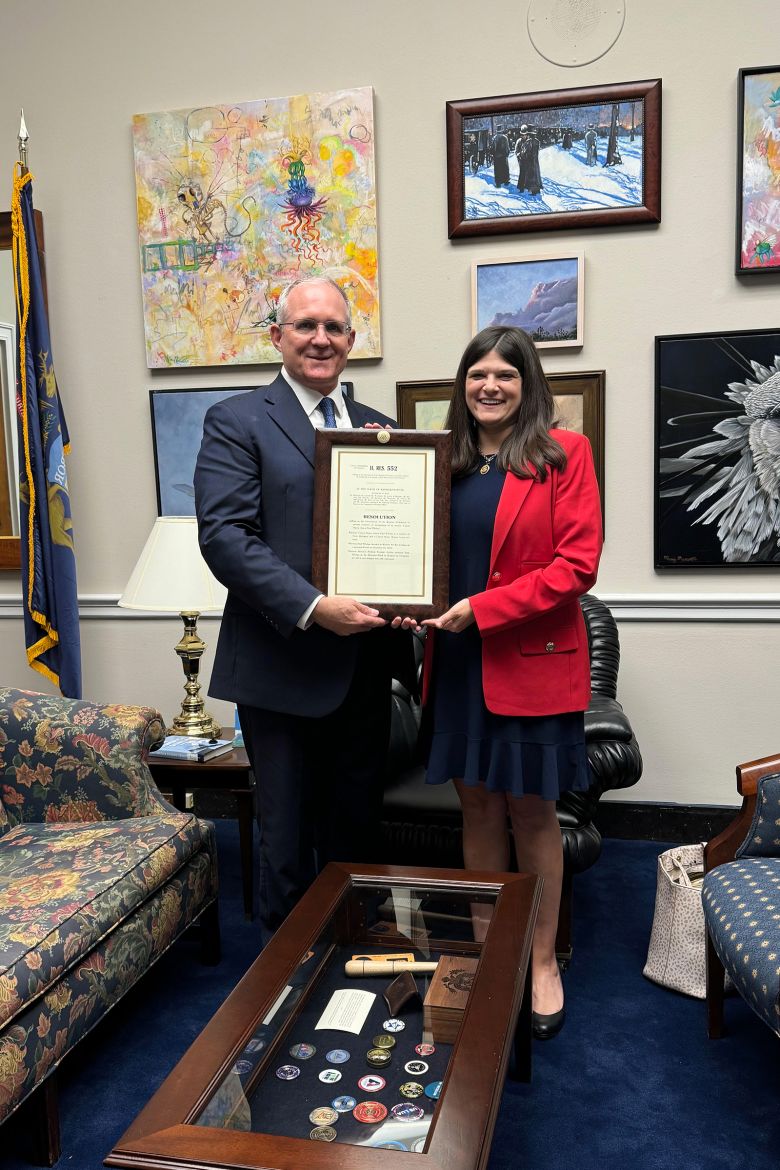For Paul Whelan, returning to life in the United States after more than half a decade of Russian imprisonment has been “interesting” – and not without its challenges.
“You’re literally starting over,” he told CNN ahead of the one-year anniversary of the sweeping US-Russia prisoner exchange deal that secured his release.
“For people like me who have come home after five-and-a-half years, we really don’t have very much. House is gone. Cars are gone. Employment’s gone. No health insurance,” he said.
His post-traumatic stress disorder gets triggered in hotel rooms, after he was “violently arrested” in one in 2018 while visiting Moscow for a friend’s wedding. It was that arrest on espionage charges that started his nearly six-year nightmare of Russian detention.
Returning to his home in Michigan was an adjustment, he said, and he had even developed new seasonal allergies from being away so long.
“It took a little bit of time for me to kind of feel comfortable driving down the same streets that I used to or going to a park or doing things that I used to do, especially with my dog when she was alive,” Whelan told CNN. His dog passed away while he was in Russia.
“Doing routine things that I hadn’t done for five-and-a-half, six years, and then I was doing them again, and it did take a few months just to kind of get back into the hang of it.”
Whelan hasn’t been able to get a new job. Some companies won’t hire people who’ve been in prison, regardless of whether that imprisonment was wrongful, he explained, and he’s competing with people who don’t have a nearly six-year gap on their resume.
“Most people understand the wrongful detention issue,” he told CNN. “They don’t know what to do with it. It doesn’t necessarily fit into their policies or procedures.”
Whelan has been working with Michigan Democratic Reps. Debbie Dingell and Haley Stevens and others to pass a law “that would fund the medical, dental and psychological care listed in the Levinson Act that was never funded, as well as to provide compensation and things like that for former hostages who were wrongfully detained,” he said.
The Levinson Act codified key parts of US hostage policy into law, including the position of the Special Envoy for Hostage Affairs, and set out criteria for making wrongful detention determinations. Additional amendments have sought to increase support for families of US hostages and wrongful detainees.
“Congresswoman Dingell has worked closely with Paul Whelan to understand and address the challenges that political prisoners face when they return home,” Dingell’s deputy chief of staff Michaela Johnson told CNN. “One of these is ensuring they have the medical treatment and mental health resources they need to recover from their traumatic experience.”
“She is working on legislation to address these issues that have been raised in her experience working with Paul,” Johnson said.
Whelan also wants to meet with President Donald Trump and Secretary of State Marco Rubio to discuss the matter.
Keeping in touch with former inmates
Whelan keeps in touch with fellow inmates who were imprisoned with him in a Russian penal colony in Mordovia.
That facility, IK-17, has now closed and will instead house Ukrainian prisoners of war, Whelan said. His friends have been scattered around the country, but they describe the situation as poor.
“The food is worse than what we had. Russia is having a tremendous problem with the economy. The prison guards aren’t happy. There aren’t enough guards to go around,” he recounted.
Prisoners, especially foreigners, are being told that if they want to get out, they have to go fight in Ukraine, he said.

Whelan also is in contact with fellow former wrongful detainees, he said, including Evan Gershkovich, who was freed with him last year. Russian-American journalist Alsu Kurmasheva and Putin critic Vladimir Kara-Murza, who is a US permanent resident, were also released as part of the sweeping exchange.
There’s a sense of camaraderie among the former detainees, Whelan said, likening it to “the Island of Misfit Toys” from the Christmas movie “Rudolph the Red-Nosed Reindeer.”
“It’s a unique club of people from all different backgrounds were brought together not by their choosing, and we have shared experiences,” Whelan said.
Looking ahead to how he will commemorate the one-year anniversary of being freed, Whelan said, “There’s a special bottle of scotch that I have that I’ll probably open, and I think I’ve got a box of cigars sitting around.”



